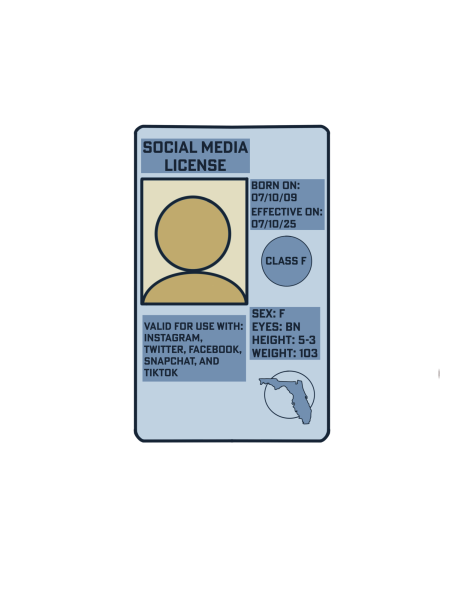Sexting trend brings consequences
March 18, 2016
Between raging hormones and feelings of peer pressure, teenagers will often find themselves in a situation that has the potential to result in negative consequences.
Last November in the Kings Park Central School District on Long Island, a sexting scandal involving dozens of students resulted in their suspension. The scandal entailed a video of a sexually explicit off-campus encounter between two students. The school started suspending students not only for being suspected of forwarding or showing the video, but also if they received the video and failed to report it to school officials.
School Resource Officer Charles Landmesser discussed the circumstances and legal implications tied to sexting.
“Sexting often occurs after a bad breakup between teens, and then one of them sends out pictures being vindictive,” Landmesser said. “If parents feel their child has been a victim and wants to pursue charges, then they have the right to do so.”
According to a study done by researchers at the University of Southern California, 20 percent of students who have the ability to text on their cell phones have at some point received a sext. A sext is an explicit message or photo containing sexual content. In addition, students who texted more than 100 times a day were four-and-a-half times more likely to have sent sexts, and sexting recipients were six times more likely to have reported having sex.
But how often does this goes on in most high school settings? According to research published in the “Archives of Pediatric & Adolescent Medicine” in July 2012, one-fourth of teens admitted to having sent a sext.
Another incident occurred last winter in Colorado involving high school and middle school students. Hundreds of naked photos were exchanged, resulting in the suspension of some students. The incident went even further, to the point where students were potentially facing criminal charges. Although they were never formally charged, the judge warned that they would face severe consequences if it were to happen again.
West Shore is no exception to this rising trend. A student who wishes to remain anonymous spoke on his past experience with sexting.
“I’ve never sent but have received texts containing sexual images before,” he said. “It was exhilarating because I used to do it for sport [to see how many I could collect]. I think that girls start to feel good about themselves that guys want to see them this way. I feel if two people are underage it doesn’t matter but it should be kept to yourself because it’s a privilege.”
Sexting laws vary from state to state. Some choose to prosecute minors to the full extent of the law, which may result in severe consequences including being labeled as a sex offender. Other states have programs which attempt to discourage this behavior and are more lenient about prosecuting. This is because judges usually feel less inclined to allocate such severe punishment to
ill-advised teens.
Once convicted as a sex offender, the label could tarnish one’s reputation and image forever. Sex offenders must make others aware of their crime, whether putting it on an job application or being required by law to tell neighbors.
In Florida, teens caught sexting face a type of discipline ladder.
“It’s not a felony the first time offense, but a misdemeanor,” Landmesser said. “Each time something is inappropriately distributed it goes from a misdemeanor to a felony. If the sender is under age, it can constitute a civil penalty, and if the person receiving it distributes it out, it can become a misdemeanor or felony depending on the number of times they did. ”
Even when an image is taken down from the internet, it is never completely erased.
“A lot of kids think when they go on social media and take something down that it’s gone, but that’s not the case,” Landmesser said. “All social media sites are required to keep anything that goes across their site for 90 days or longer. If law enforcement gets involved they can get a subpoena and the site has to disseminate that information to them.”
According to a Business Insider article “Snapchat has long been heralded as a sexting app.” The main purpose of snapchat is that someone sends a photo which lasts a certain number of seconds, and after that time the photo is gone forever. If the photo is screenshotted by the receiver then the sender is given a notification that they have done so. This might make it more appealing to people who sext, as they feel the text will be gone forever after being sent.
“I think that [sexting] is what [Snapchat] was made for,” senior Austin Smithe said. “It’s kind of shady but I’m sure that’s what people use it for. I don’t really think rules against it are enforced at all. I know people that do it but I don’t think it’s something you should be telling everybody about.”
Senior Lizzy Luker looks down on the trend of sexting, and said that apps such as Snapchat should not be used for that purpose.
“I think [sexting] is disgusting,” Luker said. “I feel that some girls love gross attention from guys. I like snapchat but I don’t use it for sexting. I guess some people would (send a snap) like that for just a second, but I think that’s dumb.”
Today there are apps such as Casper or Snapsave which allows people to view and screenshot snaps without the sender knowing. There are also photo vault apps which may hide images by appearing to be a calculator or media player while needing a password to access it.
“They have what they call a privacy between two people,” Landmesser said. “If one person sends it to another but they send it out, there was an expectation that has been broken. If it is brought to a legal process, people may become aware of it, but it sends a message that it isn’t right and they shouldn’t do that.”
The exchange of sexually explicit messages can lead to a domino effect of issues in a teenagers’ life. Sending pictures or messages may seem fun and harmless in the moment but open up a world of trouble and heartache if not handled correctly.



![The Melbourne Fire Department recognized coach and custodian Derrick Hamilton on April 16 with the Lifesaving Citizen Award during lunch. I would just react for anyone, Hamilton said. My love for children -- thats what it comes down to. [I am] where I am supposed to be.](https://westshoreroar.com/wp-content/uploads/2024/04/DSC_0639-1-e1713376507113-1200x805.jpg)












